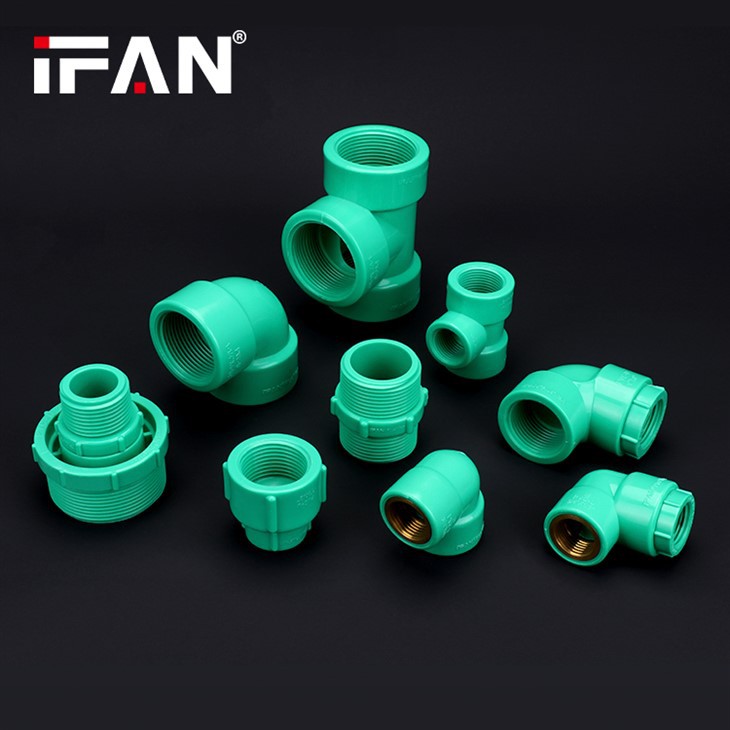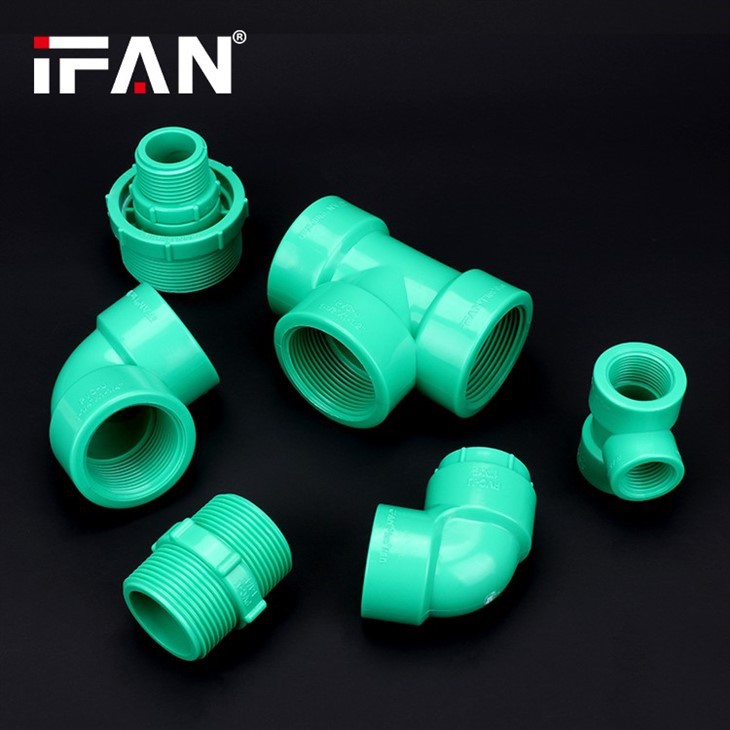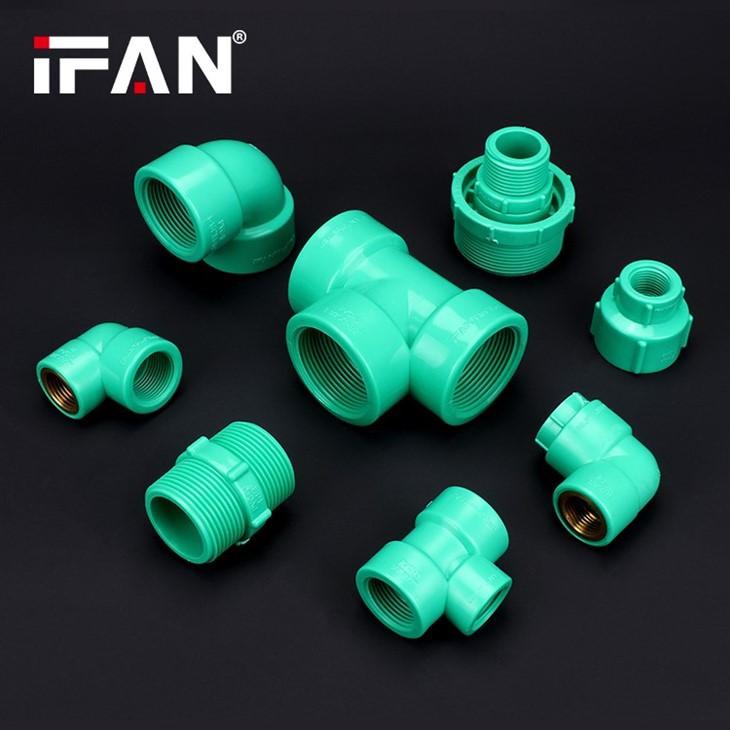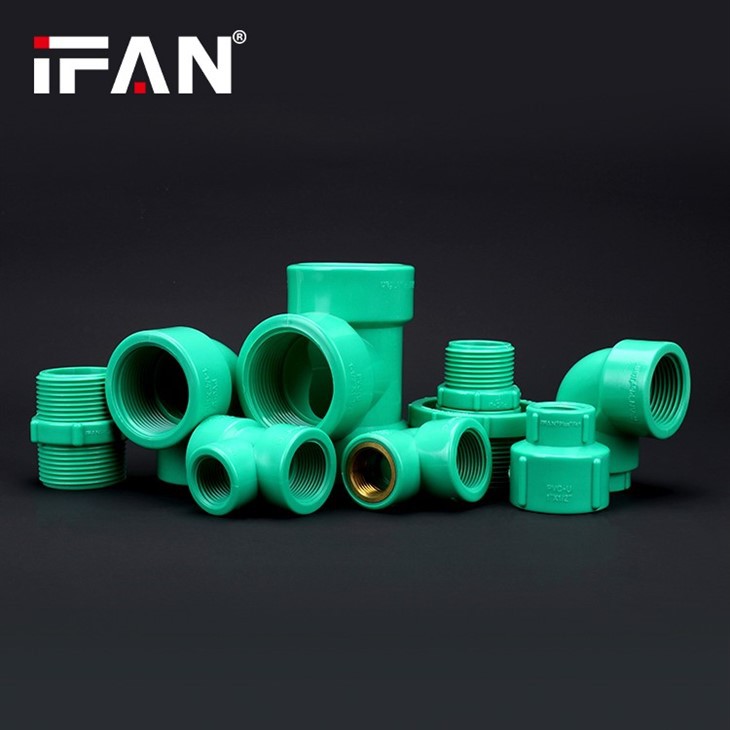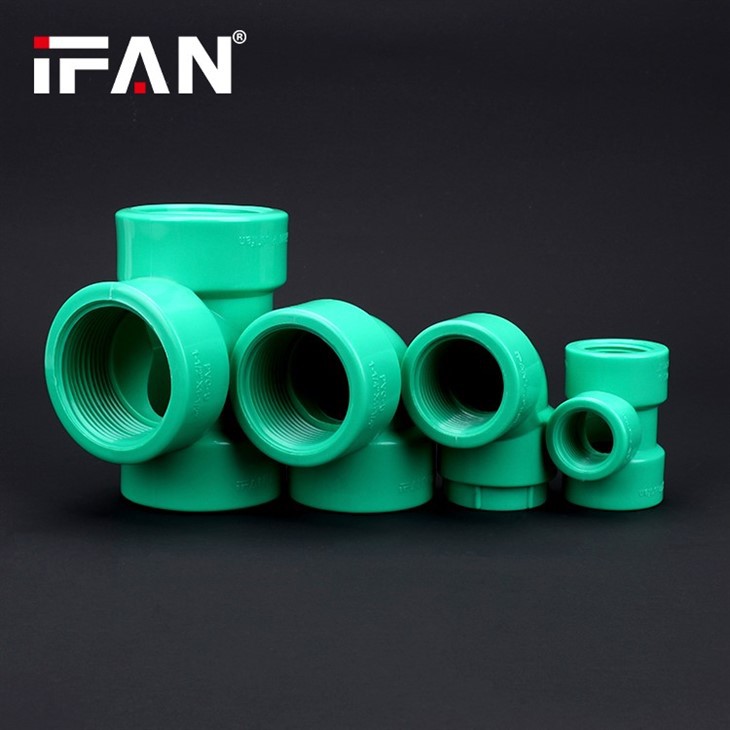UPVC Fittings
PVC CHARACTERISTICS AND PROPERTIES
PVC as a material is fairly durable, flexible, and resistant to many harsh working conditions that can involve chemicals, soil, water, wastewater and water pressure. As a plastic, PVC is naturally resistant to corroding, rusting and the effects of weathering, excluding PVC’s long term sensitivity to continuous ultraviolet (UV) sun exposure. Within chemical handling and processing, PVC offers sufficient chemical strength and compatibility with many corrosives, strong and weak acids, weak bases and caustics as well as halide / brine solutions.
When compared to many metallic materials that are used for similar applications, products made from PVC are lightweight, more easily maneuvered, can exhibit less chemical reactivity. They also often report lower purchase and installation costs that in turn promotes a greater service life to cost ratio. Plumbing and equipment manufactured from PVC can have a service life potential of 100 years or more when employed within ideal, non-damaging work environments.
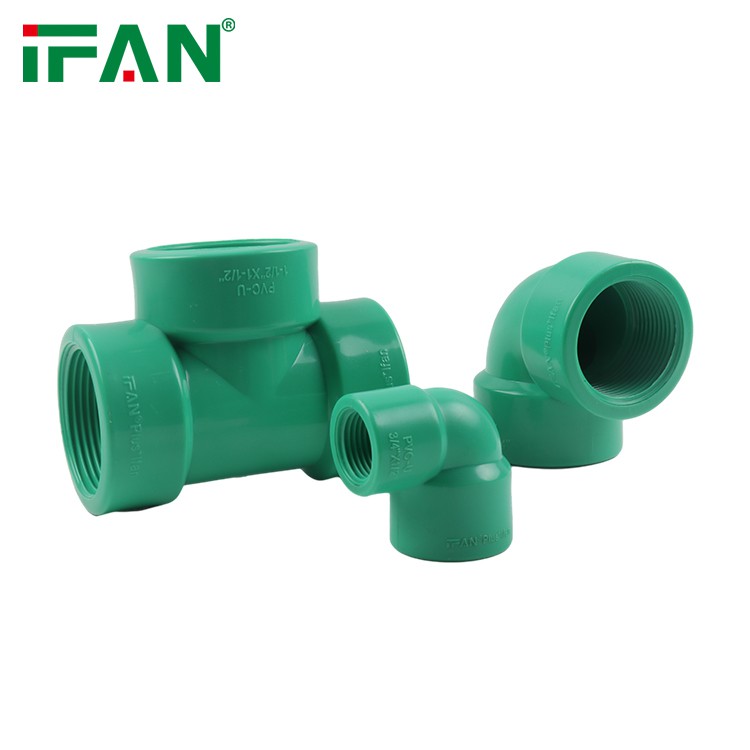
In terms of working conditions, properties and sensitivity, PVC can be susceptible to elevated temperatures, scenarios that can experience freezing fluids, applications involving pressurized gases and long term outdoor installation with sun exposure. Maximum service temperatures for PVC cap around 140°F (60°C) where softening of the PVC material can begin to occur. Minimum temperatures for PVC are relevant whenever handling liquids and is largely dependent on the freezing point of the liquid. Fluid freezing should be avoided in PVC pipes as the accompanying expansion can cause damage or fracturing of the structural material.
PVC as tubing and pipework lacks the structural engineering durability to handle pressurized gases and are not intended for gas / air conveyance due to the potential for bursting. Unless covered, painted or fabricated with UV stabilizing compounds such as titanium dioxide, PVC is not recommended for extended, above ground outdoor uses. Free radical reactions along the material’s surface will overtime lead to PVC discoloration and increase plastic embrittlement, noting however this only applies to PVC’s external resilience to impacts and drops.
HOW IS PVC USED
First implemented in the 1920s, PVC is now heavily used within water delivery pipes, venting and duckwork for structures, appliances and equipment, plumbing conveyance of sewage and wastes, chemical fluid transfer, in construction engineering as well as an array of individual, unique items and consumer products. When used in applications, PVC is considered non-toxic and relatively inert when manufactured free of specific, potentially harmful additives to the base resin material, such as lead. The most common form of PVC is unplasticized PVC (uPVC) and is the type of PVC used to fabricate rigid materials such as pipes, sheets and structural equipment. The other common PVC type is plasticized PVC where, as the name indicates, has had plasticizing agents added to the resin that increase the material’s flexibility. Plasticized PVC is often used to produce flexible tubing, apparel wear and PVC hoses.
Most often whenever the PVC acronym is mentioned, the use of uPVC as the material type is implicated and understood less otherwise stated. Unplasticized PVC is acceptable for ANSI and NSF 61 certification for its use in handling potable, drinkable water. Other common PVC use design certifications include ASTM D1785, D2241, D2729, D3034 and AWWA C900/909. These various design approvals and manufacturing standards for polyvinyl chloride approve the polymer for its use within the many modern application scenarios that PVC is now commonly used within.
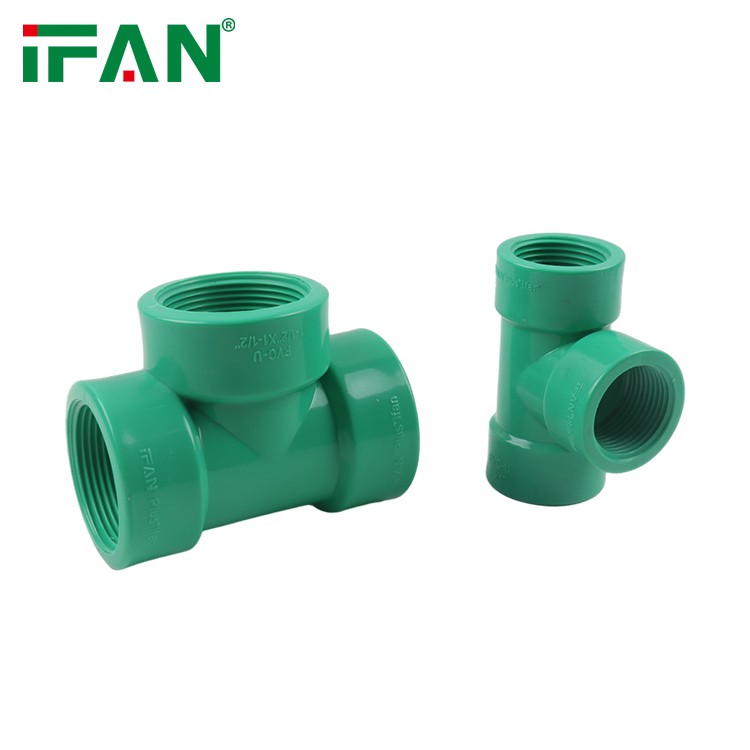
Lastly, BST UPVC fittings are aesthetically pleasing. They come in a range of colors and designs, allowing you to choose fittings that blend in with the exterior of your home or commercial building. UPVC fittings are also easy to clean and maintain their appearance, making them a popular choice for high-traffic areas.
To summarize, BST UPVC fittings are a vital component of the plumbing industry. They are durable, affordable, easy to install and maintain, eco-friendly, and offer significant cost savings in the long run. UPVC fittings provide a range of benefits over traditional metal fittings, making them a popular choice among homeowners and plumbing professionals alike. For anyone looking to invest in an effective plumbing system, UPVC fittings are an ideal solution that will provide reliable and safe plumbing for many years to come.
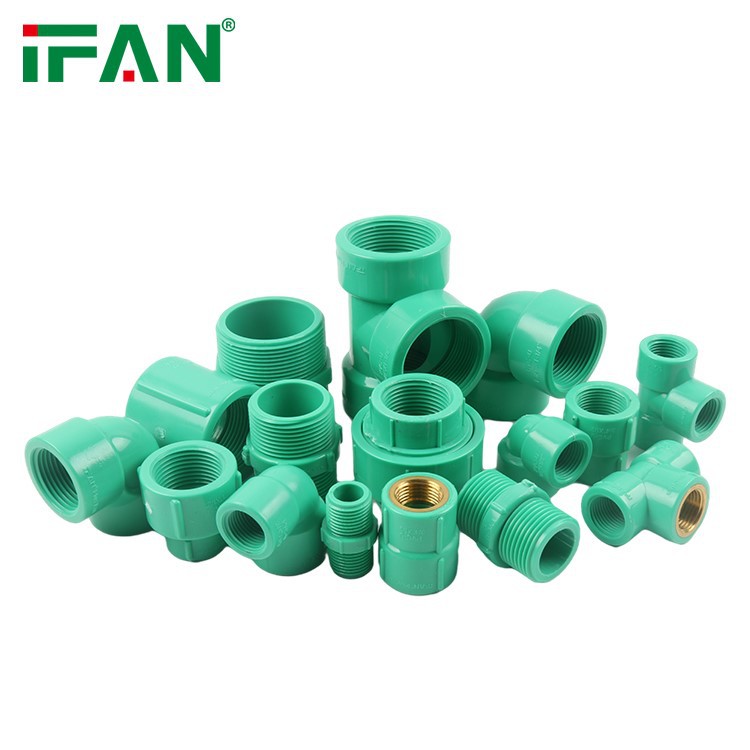
Hot Tags: upvc fittings, China, suppliers, manufacturers, factory, wholesale, cheap, discount, low price, in stock, free sample,
Send Inquiry





